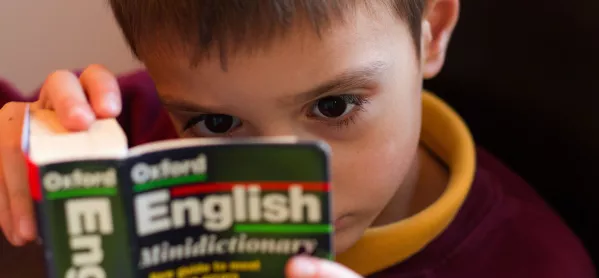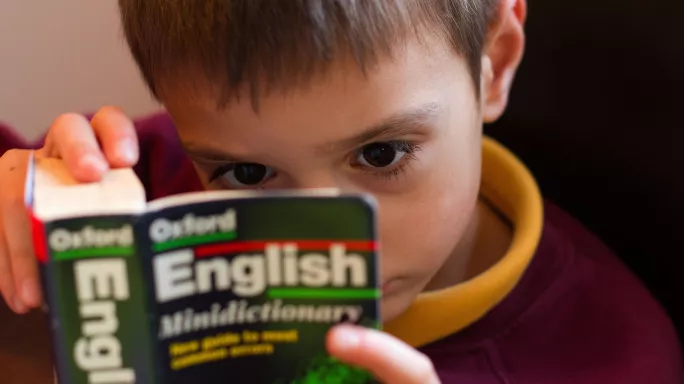Most teachers are reporting an increase in children at risk of underperforming because of their limited grasp of the vocabulary, with almost half of UK pupils affected, according to
a poll conducted by Oxford University Press (OUP).
The majority of more than 1,300 teachers surveyed in primary (69 per cent) and secondary schools (60 per cent) reported that the number of pupils with a word gap was either increasing or significantly increasing in their schools.
The 473 primary school teachers surveyed reported that, on average, almost half (49 per cent) of Year 1 pupils had a word gap sufficient to affect their learning. The 840 secondary school teachers who took part in the poll reported that, on average, this affected 43 per cent of Year 7 pupils.
More than 80 per cent of those polled believed that these children found it very or extremely challenging to understand questions and instructions in test papers such as Sats, GCSEs and Scottish national qualifications, and were likely to get worse results.
Limited vocabulary was seen by many as a general problem rather than being specific to any one group of pupils, such as those receiving free school meal (FSM) funding or those with English as an additional language.
Vocabulary gap ‘affects pupils’ mental health’
Teachers observed that the word gap also affected pupils’ self-esteem, mental health and wider life chances.
Causes identified by teachers for the word gap included a lack of opportunity to practice vocabulary at home, and not enough time reading for pleasure.
The report cites research from the Early Intervention Foundation that shows children with language difficulties at age 5 are four times more likely to have reading difficulties in adulthood, three times as likely to have mental health problems and twice as likely to be unemployed when they reach adulthood.
The OUP research found that just 27 per cent of school teachers and 29 per cent of secondary school teachers said that they had a school-wide programme in place to identify and support pupils with a limited vocabulary. Finding the necessary time in which to design and conduct an effective programme was cited as a notable challenge to overcome.
Jane Harley, OUP strategy director for UK Education, said: “Without enough language - a word gap - a child is seriously limited in their enjoyment of school and success beyond. Language is at the heart of education and we believe that more needs to be done to address the issue throughout school and give teachers support to make a difference to these children’s lives.”
Want to keep up with the latest education news and opinion? Follow Tes on Twitter and like Tes on Facebook





